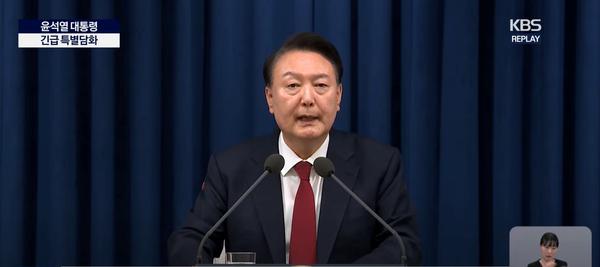South Korea's Political Crisis: Opposition Party Leader Calls for Parliament Protection
Following President Yoon Suk Yeol’s declaration of ‘emergency vigilance,’ South Korea faces mounting political tensions as opposition leader Lee Jae-myung urges citizens to protect parliament, highlighting deep divisions in Korean politics.

The current political upheaval in South Korea represents a critical moment in the nation’s democratic journey. President Yoon Suk Yeol’s sudden declaration of “emergency vigilance” has triggered a swift response from the Democratic Party of Korea, the nation’s largest opposition party, creating a tense political standoff.
The crisis stems from multiple underlying factors. President Yoon’s administration has been grappling with historically low approval ratings, hovering around 17%. This unprecedented low support reflects growing public dissatisfaction with his leadership style and policy decisions. His administration has faced criticism for its handling of various issues, including diplomatic relations with Japan and the United States.
The conflict between President Yoon and opposition leader Lee Jae-myung has escalated significantly. The heart of their dispute lies in fundamental disagreements over governance approach, judicial independence, and the direction of South Korea’s domestic and foreign policy. President Yoon’s attempts to investigate Lee and his associates have been viewed by opposition supporters as political persecution rather than legitimate law enforcement.
The situation has broader implications for South Korea’s democratic institutions. The parliament, traditionally a forum for political debate and compromise, has become a battleground. The opposition’s call for citizens to “protect parliament” reflects deep concerns about the potential erosion of democratic checks and balances in South Korea’s political system.
The current crisis also reveals structural weaknesses in South Korea’s political framework. The sharp division between the ruling and opposition parties has hindered effective governance and policy implementation. This polarization extends beyond political elites to the general public, creating a deeply divided society.
In the international context, this political instability occurs at a particularly sensitive time. South Korea’s strategic position in East Asia and its crucial role in global supply chains, particularly in semiconductor manufacturing, makes its political stability a matter of international concern. The crisis could potentially impact South Korea’s relationships with key allies and its economic partnerships.
The mobilization of citizens to protect parliament, unprecedented in recent South Korean history, signals a potential turning point in the nation’s democratic development. It demonstrates both the strength of civil society engagement and the fragility of institutional stability in contemporary South Korean politics.
This political standoff may have lasting consequences for South Korea’s democratic institutions and its role in regional geopolitics. The resolution of this crisis will likely shape the future of South Korean democracy and its position in the international community.